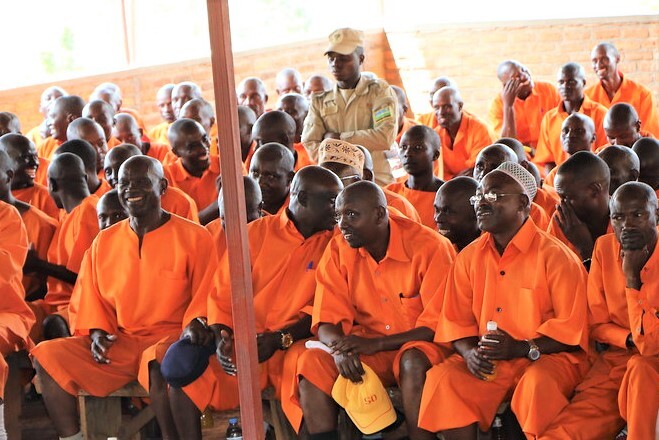HARARE – Zimbabwe has begun releasing about 3,000 prisoners under a presidential amnesty aimed at easing congestion to reduce the threat of COVID-19 in the country’s overcrowded jails.
About 400 prisoners were released from Chikurubi prison and other jails in the capital, Harare, on Saturday as more were set free from other facilities countrywide.
Zimbabwe’s prisons have a capacity of 17,000 prisoners but the country’s jail facilities house up to about 22,000 – one of the reasons President Emmerson Mnangagwa declared an amnnesty.
“We were crowded in the cells despite the Covid scare and sometimes we were 25 in a single cell,” said former prisoner Kudakwashe Maoneka.
“We were aware of the prevention measures but it was difficult to stay even a metre apart from the next person and we even slept as a crowd.”
Those to be released had been convicted of non-violent crimes. Those convicted of crimes such as murder, treason, human trafficking, and sexual offenses will remain locked up behind bars.
All females imprisoned for non-violent crimes and who served a third of their sentences are to be released, as well as all disabled persons convicted of non-violent crimes. Mnangagwa also commuted death sentences to life sentences for many prisoners on death row. Zimbabwe still has the death penalty but has not hanged anyone in years.
The amnesty ‘will go a long way’ in reducing expenditure and the threat of the spread of the virus in prisons, said Alvord Gapare, the commander for prisons in Harare. He said prisons in the capital had recorded 173 confirmed infections and one death.
Zimbabwe has recorded 37,534 cases of COVID-19, including 1,551 deaths by April 17, according to the Africa Centre for Disease Control and Prevention.
Authorities have suspended visits to prisons as plans were underway to vaccinate inmates as part of measures to combat the spread of the virus, according to Gapare.
Political activists who have been sent to prison as part of a government crackdown on dissent have spoken of dire conditions, which they said put inmates at risk of both starvation and disease outbreak.
In another response to the pandemic, Zimbabwe has cancelled the Independence Day celebrations that were scheduled for April 18. The move is aimed at combating the spread of COVID-19.
If you would like your article/opinion to be published on Uganda’s most authoritative news platform, send your submission on: [email protected]. You can also follow DailyExpress on WhatsApp and on Twitter (X) for realtime updates.



